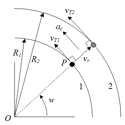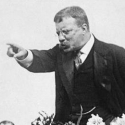|
I definitely liked State of the Art too, A Gift From the Culture from the same collection didn't do anything for me though. My favorite part of that collection is the essay "A Few Notes on the Culture" just because it fleshes out his idea and the universe he's built a lot. When I picked up Consider Phlebas I had never even heard of Banks, all I thought when I grabbed it off of my roommate's shelf was "isn't that from The Waste Land?". I've grown to kind of like it now, but when I first finished it I sure didn't, the end just felt needlessly cruel to the characters.
|
|
|
|

|
| # ? Apr 27, 2024 11:49 |
|
I don't know how you measure artistic relevance but I can tell you that reading it in the wake of Player of Games and Use of Weapons left me completely underwhelmed. My reactions to the various short stories oscillated between dislike and actual hate of the setting and tone. Thank god I didn't read it immediately after Consider Phlebas or I'd have probably given up on the whole Culture series right there and then.
|
|
|
|
MeLKoR posted:Definitely happy in the long run, I mean... probably. The Culture were directly involved in this situation, I imagine they'll be doing everything they possibly can to minimize fallout. How successful they'll be is anyone's guess, though supposedly Chel was an anomaly so it'll probably work out.
|
|
|
|
Gravitas Shortfall posted:Player of Games definitely has a happy ending. One thing I like about Player of Games is that you can really go either way with it. It could be a happy ending, or it could be pretty gloomy depending on your interpretation of events. I like the gloomier interpretation myself: It's a story about Gurgeh, master game-player, getting used from start to finish as a pawn in SC's bigger game. SC simultaneously uses him to plunge a disfavored empire into civil war, and breaks him of his un-Culturelike traits (which could be maturation or brainwashing, depending on your view). Not only is Gurgeh the right tool for breaking Azad, you could also argue that SC is simultaneously punishing him for rejecting the values of the Culture. He is violently coerced into going along with the mission (Amtiskaw/Imsaho lures him into cheating, threatens to reveal him, and then chokes a bitch to boot, all invisible to the Hub) and then all his information about the Azad culture is filtered by Imsaho to mold his impressions of the society. He arrives back in the Culture only three days later by his subjective time, nearly mute and catatonic, and the book ends with him breaking down in tears. Changed: yes. For the better: possibly. Against his will: definitely. It's like a velvet-gloved version of "He loved Big Brother". I love the Culture, I'd move there in a heartbeat, but I still like that interpretation best.
|
|
|
|
I think Banks uses the Culture to work out some of his own ideas about the possible outcomes of a perfect socialist society. The logline of the Culture is that they are totally tolerant, but there are in fact a great number of things they will not tolerate, and they are perfectly willing to use their power impose their values on others. Banks seems to use the Culture to explore these issues and seems to come down on the side that he is sort of OK with that state of things. Or that may just be me bringing my own bias to it.
|
|
|
|
Coriolis posted:It's a story about Gurgeh, master game-player, getting used from start to finish as a pawn in SC's bigger game. SC simultaneously uses him to plunge a disfavored empire into civil war, and breaks him of his un-Culturelike traits (which could be maturation or brainwashing, depending on your view). Not only is Gurgeh the right tool for breaking Azad, you could also argue that SC is simultaneously punishing him for rejecting the values of the Culture. He is violently coerced into going along with the mission (Amtiskaw/Imsaho lures him into cheating, threatens to reveal him, and then chokes a bitch to boot, all invisible to the Hub) and then all his information about the Azad culture is filtered by Imsaho to mold his impressions of the society. He arrives back in the Culture only three days later by his subjective time, nearly mute and catatonic, and the book ends with him breaking down in tears. Changed: yes. For the better: possibly. Against his will: definitely. It's like a velvet-gloved version of "He loved Big Brother".
|
|
|
|
Lemmi Caution posted:I think Banks uses the Culture to work out some of his own ideas about the possible outcomes of a perfect socialist society. The logline of the Culture is that they are totally tolerant, but there are in fact a great number of things they will not tolerate, and they are perfectly willing to use their power impose their values on others. Banks seems to use the Culture to explore these issues and seems to come down on the side that he is sort of OK with that state of things. Or that may just be me bringing my own bias to it. I think that's a fair interpretation, with the caveat that most of his books to deliberately confront the ambiguity that comes with having one group force their values on another - most of his books deal directly and sympathetically with people who don't agree with the Culture's values and he explicitly acknowledges that this can be a source of violent push-back from those folks. At the end of the day, though, I think you're right that the Culture's values are presented as maximizing happiness for its citizens and their actions as defensible.
|
|
|
|
Notahippie posted:I think that's a fair interpretation, with the caveat that most of his books to deliberately confront the ambiguity that comes with having one group force their values on another - most of his books deal directly and sympathetically with people who don't agree with the Culture's values and he explicitly acknowledges that this can be a source of violent push-back from those folks. At the end of the day, though, I think you're right that the Culture's values are presented as maximizing happiness for its citizens and their actions as defensible. Not just for their citizens. The Culture is shown as respecting their set of moral rights they see that individuals of other civilizations deserve, and in fact respecting and aiming to manipulate the situation to improve the situation of each of the member individuals above any rights of the abstract culture or civilization that said alien is a member of. That sentence was a bit of a mess. MikeJF fucked around with this message at 06:17 on Jun 1, 2012 |
|
|
|
Just finished player of games. Stayed up way too late doing so. Came back to read the huge block of spoilers above. what unculturelike traits was he scourged of? also, I don't think I'll ever get the image out of my head of an apex waggling it's inside-out vagina around gloatingly. Now that I think back, I'm not clear about whether mwarkin actually was voted out of contact or if that was a cover story to get him close to Gurgeh, and if so, how long were they friends? Gurgeh put up the time they knew about Azad against his own age and wondered if it was a coincidence or not but then he's got this deep cover contact operative neutered and moaning about along side him the whole time so maybe it wasn't a crazy idea after all? And was the card pulled out of mwarkin literally isamo (none of these names are rememberable give me a break) and was the whole "boo hoo I have to wear this big clunky piece of poo poo all day" an ironic statement because he wore one for the decades he was friends with Gurgeh pretending he didn't have missile launchers, etc.? Also the first thing he did when he came in the burnt down castle and saw gurgeh playing with the ashes was pick up a bullet from the ashes and put it back into his mass driver or whatever. That makes it pretty clear the hole in the emperor's head was because he shot him? But then Gurgeh sees this, and still asks him if the laser reflected into the emperor's head and ismsaho says "I'll never tell" coyly... Did I, the reader, know it was a bullet and Gurgeh didn't see it? Or was he picking up something else from the ashes (I am assuming they were the emperor's ashes because of the royal signet ring he dug out of them? And the pile of ashes in his pocket he cried about at the end?) Anyway it was a really powerful book and I'm glad I read it. I can't believe that lady who he met but forgot her name, and he kept remarking about her, never came back. I wanted some kind of explanation for her "you win, you win!" statements, although maybe she was one of the people who knew that if he won the empire would fall? But through the entire book I was waiting for that to make sense. I also can't believe that he wasn't tossed in the labyrinth. I felt like that was obviously going to happen at some point.
|
|
|
|
My understanding of Player of Games is that Gurgeh got played start to finish, and Mawhrin-Skel was Flere-Imsaho in disguise, which is what the bulky "disguise" Flere-Imsaho wears on Azad was meant to be a tip-off to when Gurgeh finds Mawhrin-Skel's "shell" at the end. There never was a Mawhrin-Skel; it was an made-up identity used by Flere-Imsaho, a Contact member, to play Gurgeh.
|
|
|
|
Krinkle posted:Just finished player of games. Stayed up way too late doing so. Came back to read the huge block of spoilers above. what unculturelike traits was he scourged of? Well, it isn't explicitly shown that he's been rid of these traits, but one can assume. The whole first section of the book (with Gurgeh on the orbital) is there to show you how out of place he is in the Culture. In the Culture games are just played for fun, but Gurgeh wants to win which by extension means he wants to dominate the other player. There's a bit where he wishes the Culture had money so there could be real stakes attached to a game. It's also why that friend-chick doesn't want to sleep with him, she says he's too possessive. Azad is a literal embodiment of winning=domination: the more you win, the more people you get to rule. So the whole idea of playing to win is completely antithetical to the Culture's egalitarian, anarchistic values. You actually see the values of the Culture playing out against the values of Azad in the final game between Gurgeh and the Emperor (hierarchy vs networks, domination vs cooperation, etc). By the end Gurgeh has been glutted on games with real stakes, and his final match against the Emperor proves the superiority of the Culture's way of life. Coriolis fucked around with this message at 15:23 on Jun 1, 2012 |
|
|
|
Coriolis posted:Well, it isn't explicitly shown that he's been rid of these traits, but one can assume. The whole first section of the book (with Gurgeh on the orbital) is there to show you how out of place he is in the Culture. In the Culture games are just played for fun, but Gurgeh wants to win which by extension means he wants to dominate the other player. There's a bit where he wishes the Culture had money so there could be real stakes attached to a game. It's also why that friend-chick doesn't want to sleep with him, she says he's too possessive. Azad is a literal embodiment of winning=domination: the more you win, the more people you get to rule. So the whole idea of playing to win is completely antithetical to the Culture's egalitarian, anarchistic values. You actually see the values of the Culture playing out against the values of Azad in the final game between Gurgeh and the Emperor (hierarchy vs networks, domination vs cooperation, etc). By the end Gurgeh has been glutted on games with real stakes, and his final match against the Emperor proves the superiority of the Culture's way of life. This, exactly is why I like that book so much. I was trying to say as much a few pages back. The Culture, which is supposed to be about individual freedom, also has no problem "re-educating" somebody--but the delicious irony in the way they do it really makes the question of whether it was a good thing or a bad thing unsolveable.
|
|
|
|
I think they don't even really re-educate gurgeh, at least not in clockwork orange style by any means. The culture is just completely assured of its own moral superiority, in the sense that it's been rigorously examined and upheld in every way. They just put gurgeh in a situation where he has no alternative but to reeducate himself.
|
|
|
|
I'm reminded of Look to Windward where the dead Chelgrian admiral talks about how he was turned whilst in storage, not by any modification or special techniques, but just by the Culture waking him up and demonstrating that their way was better.
|
|
|
|
andrew smash posted:I think they don't even really re-educate gurgeh, at least not in clockwork orange style by any means. The culture is just completely assured of its own moral superiority, in the sense that it's been rigorously examined and upheld in every way. They just put gurgeh in a situation where he has no alternative but to reeducate himself. True, the Culture would never stoop to something so crude as re-education camps (or mindhacking) but given the level of interest Minds can take in individuals as shown in Excession, I feel that somewhere out there is a Mind that considered reforming Gurgeh just as important as the other aspect of the mission.
|
|
|
|
MikeJF posted:I'm reminded of Look to Windward where the dead Chelgrian admiral talks about how he was turned whilst in storage, not by any modification or special techniques, but just by the Culture waking him up and demonstrating that their way was better. I'm pretty sure he was turned before he went into storage, simply by observing the Culture from afar.
|
|
|
|
Coriolis posted:True, the Culture would never stoop to something so crude as re-education camps (or mindhacking) but given the level of interest Minds can take in individuals as shown in Excession, I feel that somewhere out there is a Mind that considered reforming Gurgeh just as important as the other aspect of the mission. That may be true but the moral distinction lies in the fact that gurgeh wasn't sat in a chair and reformed but was led inevitably to reach his own conclusions vis-a-vis the culture and reform himself. That's sort of the point of the culture in a nutshell anyway.
|
|
|
|
Krinkle posted:
Flere Imsaho something something Xato Trabti Mawrin Skel My opinions on your questions: 1-Flere/Mawrin was picking up his knife missiles from around the entire castle area, not from the emperor's ashes specifically. Also, since he has information about the area, they might have been scouting for him. Since the Emperor was pointing a laser gun at Gurgeh, and went down when Flere put up a mirrored force field to stop the laser, the question isn't whether that field killed him but whether or not it was intentional. 2-She did come back in a limited way. After the first round of games, Gurgeh can't recall her name, but asks for a list of the females who made it past the first round - to try to jog his memory if she's skilled enough to be interesting. Of course, none of the rare female entrants made it through. The point of her was to demonstrate that the empire's limited displays of tolerance are hollow (or self-fulfilling propaganda), and she wanted a fellow outsider to win because she knew that she would never be permitted to win. I'm glad you liked PoG more than Captain Poison's Irrelevant Dicking Around Show. Ceebees fucked around with this message at 22:04 on Jun 1, 2012 |
|
|
|
andrew smash posted:That may be true but the moral distinction lies in the fact that gurgeh wasn't sat in a chair and reformed but was led inevitably to reach his own conclusions vis-a-vis the culture and reform himself. That's sort of the point of the culture in a nutshell anyway. I think this is right on point. There's a broader theme across all of the books about bringing people around to the Culture's thinking. In each case the Culture is not trying to force people to live the way it thinks is best for them, but to win the bigger victory and get them to change their minds. Also, I think the example given by Excession is a bit of an outlier since the Sleeper Service was personally responsible for making a hash of things when it was still the Quietly Confident.
|
|
|
|
Lasting Damage posted:Also, I think the example given by Excession is a bit of an outlier since the Sleeper Service was personally responsible for making a hash of things when it was still the Quietly Confident. It probably is an exceptional case, but I like the idea that Minds can be that concerned for a single individual. It makes them seem a little less godlike.
|
|
|
Coriolis posted:It probably is an exceptional case, but I like the idea that Minds can be that concerned for a single individual. It makes them seem a little less godlike. I think it makes them seem a lot more godlike, seeing as we know they can be intimately concerned with billions of individuals at a time.
|
|
|
|
|
Ceebees posted:
Before he met her, Gurgeh seemed to be threatened by women because they had all had a level playing field with him on any level. I like the idea that if Gurgeh hadn't changed his mind at the last minute, it would have been the "full-web" girl of the Culture liberating those being controlled by the Empire of Azad. She was a better player and would make a purer, more symbolic champion, but would have been in a lot more danger. The Azadian woman also seems to be a challenge to the reader. Does anyone remember her name? The story progresses so quickly that it's impossible to backtrack for her even though Gurgeh keeps bringing her up. It's cool that Gurgeh's playstyle paralled the Culture's tactics against the Iridans too, even though he probably didn't realize it (or I just forgot that he did).
|
|
|
|
Fleetwood posted:
They didn't until the end. IIRC gurgeh realized it was the only way he could win. He knew exactly what he was doing.
|
|
|
|
Barry Foster posted:I think it makes them seem a lot more godlike, seeing as we know they can be intimately concerned with billions of individuals at a time. My standard explanation for just how powerful Minds are, is that a GCU or Hub Mind can play a game of go and carry on a conversation with everyone aboard simultaneously, and still run itself effectively.
|
|
|
|
mllaneza posted:My standard explanation for just how powerful Minds are, is that a GCU or Hub Mind can play a game of go and carry on a conversation with everyone aboard simultaneously, and still run itself effectively. More like play a game of go and carry on a conversation with everyone on board and everyone on several local planets while manipulating all the human players into arranging all their billions of Go boards into the full text of a book of poetry it rather liked encoded in binary.
|
|
|
|
Gangringo posted:More like play a game of go and carry on a conversation with everyone on board and everyone on several local planets while manipulating all the human players into arranging all their billions of Go boards into the full text of a book of poetry it rather liked encoded in binary. If i recall correctly, Marain's characters are grids of dots, so the Mind in question could actually be directly writing books across the Go boards.
|
|
|
|
andrew smash posted:That may be true but the moral distinction lies in the fact that gurgeh wasn't sat in a chair and reformed but was led inevitably to reach his own conclusions vis-a-vis the culture and reform himself. That's sort of the point of the culture in a nutshell anyway. He wasn't "sat in a chair" but he was manipulated by beings much more powerful than himself. The question is whether you think they put in him a situation where he really had a choice . Some people think they just gave him the tools to change his mind. I tend to think it was just a more "civilized" way of putting him in a chair. drat, the more I think about the culture, the more I understand Horza. Banks is a friggin' genius.
|
|
|
|
Seldom Posts posted:He wasn't "sat in a chair" but he was manipulated by beings much more powerful than himself. The question is whether you think they put in him a situation where he really had a choice . Some people think they just gave him the tools to change his mind. I tend to think it was just a more "civilized" way of putting him in a chair. There's still a distinction between those two things and that distinction is what the culture prides itself on. And it doesn't have anything to do with one way being more 'civilized' - just more honest I guess.
|
|
|
|
Seldom Posts posted:He wasn't "sat in a chair" but he was manipulated by beings much more powerful than himself. The question is whether you think they put in him a situation where he really had a choice . Some people think they just gave him the tools to change his mind. I tend to think it was just a more "civilized" way of putting him in a chair. And do you think that the Culture is any more engaged in this than the cultures Horza fought for? The Idiran equivalent probably involves hot metal things and explorations of pain tolerance.
|
|
|
|
andrew smash posted:There's still a distinction between those two things and that distinction is what the culture prides itself on. And it doesn't have anything to do with one way being more 'civilized' - just more honest I guess. You might be right, but I don't think you're answering the question that I think is being posed. Given the omnipotence of the Minds, is there really a distinction? How? It seems to me that the answer is 'yes' only if you think there was a point in PofG where Gurgeh could have done something different and choose otherwise. Only then does his 're-education' become an exercise of free will in favour of the Culture. It's very similar to the argument as to why the Christian God would grant free will, because otherwise belief would be meaningless. Maybe there is a point like that for Gurgeh--I have to re-read to see, because it has been awhile. quote:And do you think that the Culture is any more engaged in this than the cultures Horza fought for? The Idiran equivalent probably involves hot metal things and explorations of pain tolerance. It's not a binary of Idrian vs. Culture. Horza fights for the Idrians because he is against the Culture, not because he is in favour of the Idrians. If I recall correctly (and I may be misremembering this in light of my thoughts above) he says something to the effect that he fights for the Idrians because under them you will still have the "freedom to be wrong," (although this presuambly may involve getting tortured by them) whereas under the Culture, how can you possibly be free to be wrong if an Omniscient AI is going to correct you?
|
|
|
|
It's interesting you bring up christianity because there are distinct (and I would guess intentional on Banks' part) parallels between Gurgeh and the parable of the prodigal son!
|
|
|
|
Seldom Posts posted:It's not a binary of Idrian vs. Culture. Horza fights for the Idrians because he is against the Culture, not because he is in favour of the Idrians. If I recall correctly (and I may be misremembering this in light of my thoughts above) he says something to the effect that he fights for the Idrians because under them you will still have the "freedom to be wrong," (although this presuambly may involve getting tortured by them) whereas under the Culture, how can you possibly be free to be wrong if an Omniscient AI is going to correct you? The Culture thinks its way of life is so self-evidently awesome that any outside visitor to a Ship or Orbital or whatever will end up being an ambassador for the Culture to their own kind, spreading the word even farther. The Idiran Empire, conversely, didn't try to capture anyone's hearts. At one point, they made Horza recite a prayer in a dead Idiran dialect he couldn't understand to a God that personally offended him. The wasn't to correct his heathen ways, but to get that symbolic gesture of obedience out of him. They didn't care what he was thinking, as long as he was willing to fall in line, because they didn't view him (or any species in the Culture) as being much more than a fleshy soulless robot.
|
|
|
|
andrew smash posted:It's interesting you bring up christianity because there are distinct (and I would guess intentional on Banks' part) parallels between Gurgeh and the parable of the prodigal son! hah, good point, I hadn't thought of that. So is the point of the Culture that "Any sufficiently advanced quote:The Culture thinks its way of life is so self-evidently awesome that any outside visitor to a Ship or Orbital or whatever will end up being an ambassador for the Culture to their own kind, spreading the word even farther. I don't understand what you are trying to get at. I'm not saying the Idrians are great people. What I am saying is that their methods of persuasion are not infalliable like the Culture's--and that is where the difference lies. Would you rather be a martyr for your beliefs or have your mind changed for you?
|
|
|
|
Seldom Posts posted:It seems to me that the answer is 'yes' only if you think there was a point in PofG where Gurgeh could have done something different and choose otherwise. Only then does his 're-education' become an exercise of free will in favour of the Culture. I'm a little fuzzy on the details, but I thought Mawhrin-Skel only persuaded him to cheat at first and then threatened him after he was approached for the mission to Azad. Maybe he didn't think the drone would blackmail him, but his older drone friend made it pretty clear he was dangerous and yet he still took up Skel's offer to cheat. Then again later on, Gurgeh loses his resolve to keep playing and again Flere-Imsaho only goes so far as to persuade him by showing him all those Azadian snuff films. In both cases I think one can argue Gurgeh had a choice and could have stopped. SC definitely left the door open and Skel/Imsaho was always there as a word in the ear, but Gurgeh could have said no. Though to be completely honestly I think you can also make a case it was entrapment, so I'm just being contradictory for the hell of it  . .
|
|
|
|
None of that matters, the choice as such happens in the climactic game against the emperor. Gurgeh chose to play as the culture essentially. He could have resisted and lost the game, but there's no way he would have done that because at that point he became cognizant of the fact that the culture's way was simply better. It was spelled out for him on the game board, which was really the only way he would ever really grasp it.
|
|
|
|
I'm reading use of weapons now, had a rough start, but I'm getting into it now. One question: What is a knife missile? In Consider Phlebas, her entire drone was a knife missile. Now it's something that detaches from a drone chassis and goes and murders people. Was the knife missile the actual drone and everything else was a false husk, like imsaho's sparking shell from Player of Games? If so, then how was the drone able to pat the retching culture agent on the back while he murdered people, if not, how was he able to stop turn and survey his massacre with satisfaction and "daintily" sidestep her falling vomit? Is he literally both the chassis and the ball bearing flying around decapitating saddled panthers and musketeers alike at the same time?
|
|
|
|
A knife missile is a drone which can be contained within/directed by another drone.
|
|
|
|
So when
|
|
|
|
Krinkle posted:So when Drone and knife missile are not synonyms. A drone is a person, a knife missile is a nonsentient submunition. They're smart enough to hunt a target, but Zakalwe still managed to trick one. Knife missiles extend fields and then fly really fast, cutting people to pieces.
|
|
|
|

|
| # ? Apr 27, 2024 11:49 |
|
While e:I am loving miserable at names in the best of circumstances and these gibberish names are no help at all
|
|
|





































